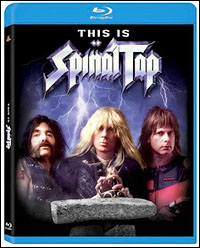
*
August in Paris is not, exactly, the perfect match of time and place; that's the month when many Parisiens gladly cede the streets to the tourists. For those of us who love Paris all the time, the Paris of Paris 36 [Sony Pictures Classics] is a perfect substitute without the nuisance of Orly. This is a Paris for the living room, mind you. It has the feel and the smell of an idealized Paree, circa 1936; wherever you are, La Tour Eiffel towers in the distance. All of your memories of the City of Light, if you have memories of the City of Light, are catered to in magnificent splendor. Don't try to figure the geography, though; the whole thing was shot in some studio over in Prague (the film was released in 1980). But hey, two hours spent with "Paris 36" will put you right back in love with the Paris of dreams.
What's more, theatre fans will find the action is centered backstage, and a meticulously detailed backstage at that. The Chansonia, as it's called, is a lovable old neighborhood music hall. The denizens are singers, stagehands and musicians, naively but capably battling the neighborhood right-wing thugs.
Director/screenwriter Christophe Barratier places his story in 1936, just as Leon Blum's Popular Front won the spring elections and instituted labor-friendly reforms. That wouldn't last long, of course; the seeds of Fascism are very much on view, with the bad guys ominously praising that fellow who was already cleaning up the Fatherland. (Barratier thankfully ends his story before Germany goes on the march.)
The Chansonia's owner, having gone bankrupt, signs the place over to a greedy businessman who immediately closes shop. Three theatre workers — two stagehands and an aspiring comedian — prevail upon the new owner to let them reopen the place as a cooperative, working for the mere joy of it and a share of any funds that might come into the box office. With the addition of a sprightly young singer from the country who suddenly turns up (like Lili in Carnival), they manage to make a go of it. There are some, no doubt, who may carp at the story's sentimental twists and turns. (Let it be said that American film critics were mixed when the film briefly played here, with a couple of lethally scathing appraisals in high places.) On the living room screen, though, "Paris 36" is quite a treat, with significant contributions in several areas. The central cast is very good. Gerard Jugnot — who looks something like a controlled and dieting Zero Mostel on his very best behavior — leads the proceedings as the middle-aged Pigoil; if anyone is looking to revive the musical Fanny or it's lesser cousin The Baker's Wife, here's a leading man for you. Clovis Cornillac plays the labor-organizing follow-spot man (and romantic lead) Milou, looking like a young Michael Kidd. There is also an ingratiating child actor, Maxence Perrin, as Pigoil's accordion-playing son Jojo. The film is sparked by 18-year-old Nora Arnezeder as Douce, singing and charming her way through the piece. Added to this is a featured appearance by Pierre Richard, the popular comedy star best known hereabouts for the 1972 spoof "The Tall Blond Man with One Black Shoe." Mr. Richard plays a reclusive hermit of a songwriter, and looks precisely like American lyricist Tom Jones.
M. Barratier does a fine job with his atmospheric tale of an evocative Paris, with stunning work turned in by his designers and especially American cinematographer Tom Stern (best known for work with Clint Eastwood). The center of "Paris 36," though, is the score. The film was created around a group of songs written by composer Reinhardt Wagner and lyricist Frank Thomas, and they are good ones. While the film is basically a drama with incidental on-stage songs, Barratier suddenly takes us into a music hall show-within-a-show; the non-singing stars are suddenly shoehorned into pastel costumes against salt-water taffy-colored sets for a sequence that will surely remind show-conscience fans of Loveland, where everyone lives on love. And favorably so. (Non-theatre fans might alternatively be reminded of the "Jolly Holiday" sequence in the movie "Mary Poppins.") All of which might well lead one to wonder whether there is a musical hidden within "Paris 36." Hard to say, although those songs by Wagner and Thomas are certainly stage-worthy.
*
 |
But it all started with "This Is Spinal Tap," and here it is again. This isn't the film's first release, of course, and many fans already have prior incarnations (including an excellent edition from the Criterion Collection). But this is "This Is Spinal Tap" on Blu-Ray. For those who are still not familiar with the film and its descendants — and yes, there are some diehard theatre fans who don't get around to too many movies with the words "heavy metal" in the description — this one is a treat. And welcome back to town, Mr. McKean.
(Steven Suskin is author of "The Sound of Broadway Music: A Book of Orchestrators and Orchestrations" as well as "Second Act Trouble," "Show Tunes" and the "Opening Night on Broadway" books. He can be reached at [email protected].)









